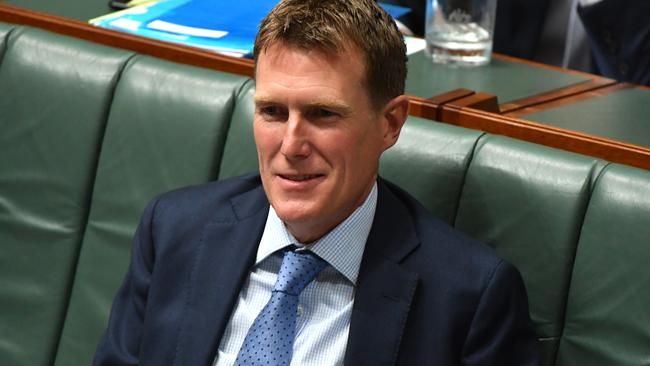Spy law rewrite offers protection to journalists
Attorney-General rewrites foreign spy laws to protect journalists from prosecution.

The government’s bungled foreign spy laws, which would have the effect of criminalising journalism, have been sent back to parliament’s intelligence committee for scrutiny after Attorney-General Christian Porter was forced to rewrite draconian penalties for media companies receiving secret government documents.
But the government is now also facing demands from the Australian Federal Police for extra resources to enforce the new laws, claiming investigating foreign espionage and prosecuting traitors would be a new area of policing for the agency.
The proposed espionage and foreign interference legislation was drafted by the government in response to concerns raised by ASIO of an unprecedented level of foreign intelligence activity. It had been described as exceeding even the heights of the Cold War.
Following an outcry from media companies over provisions that would impose lengthy jail sentences for journalists even handling classified government documents, let alone reporting on them, Mr Porter undertook to amend the laws to provide defences for media companies and reporters. Yesterday the amendments were sent to the Parliamentary Joint Committee on Intelligence and Security, which has a mandate to send recommendations to the government.
Labor opposes the laws on the ground they would impede the normal work of journalists.
Mr Porter said amendments would offer limited freedom-of-speech defences for journalists and media companies that obtained and reported on secret or top-secret information, while separating commonwealth officers from journalists in terms of the offences.
The amendments still retain the fundamental element that criminalises handling secret documents deemed to be of a national security risk unless media representatives can prove this was in the public interest.
Media organisations, some of which welcomed Mr Porter’s intervention on what he said were poorly drafted laws, have reserved judgment on the amendments while they are examined in detail.
The government has refused to meet media demands that journalists be exempted from the laws.
The major elements of the amendments include raising the bar for prosecution — making it a crime only if the reporting endangered public safety, interfered with an ongoing criminal investigation or jeopardised national security.
But determining when those thresholds are crossed still appears arbitrary, with journalists forced to face the mercy of the courts for their defence.
Mr Porter has also inserted a freedom-of-speech defence, removing the onus on journalists to justify a report as “fair and accurate” and allowing media organisations to demonstrate only that they believed publication was in the public interest.
Mr Porter said important amendments included the splitting of the criminal offence to create two separate classes of offence, and distinguishing between journalists — the recipients of classified material — and commonwealth officers who would face a higher penalty and lower threshold for prosecution.
Legal experts said the definition of “national security” was so broad that journalists could trigger the offence without even knowing. They also have concern that police and intelligence agencies could reverse-engineer an investigation by using existing surveillance laws against journalists to identify a source of classified material.




To join the conversation, please log in. Don't have an account? Register
Join the conversation, you are commenting as Logout